Category / PG research
This part of the blog features news and information for postgraduate research students and supervisors
Sport Management Researcher and Students Create Impact on International Field
Last weekend, Dr Tim Breitbarth (Senior Lecturer in Sport Management) and MSc Sport Management students Lisa Kaisner, Manuel Perez Vehi, Chih-Heng Kwan and Junbeom Kim returned from their 8-day trip attending the 22nd European Association for Sport Management (EASM) Conference, EASM Masters Seminar and EASM PhD Student Seminar. Following various successes at the 21st EASM conference in Istanbul last year, the BU travel party again made strong contributions to this leading international sport management conference.
Together with 60 students from around the globe, the students worked in mixed groups on three different sport marketing cases and had to present their findings and plans in front of a critical jury over the period of 4 days before the main conference. Lisa and her team won the case competition on the Olympic legacy of the Coventry Ricoh Arena and, therefor, were invited to present at the main conference. Feedback from the students on the Masters Seminar in particular was largely positive – especially in terms of networking, making new friends, learn from one another and visiting sport venues/matches like the Rugby School and the season opening of the Leicester Tigers.
Invited Keynote and Conference Workshop Convener
Besides tutoring at the Masters Seminar, Dr Tim Breitbarth was invited to provide a keynote at the PhD Student Seminar titled “Book or articles? Assessing the strengths and weaknesses of the form of your PhD thesis”. His contribution was very well received and awarded during the conference dinner. He also mentored three PhD researchers from Belgium, South Africa and Mexico at the Seminar and gave advise on their research.
At the main conference, Tim together with his small international team organized and convened a workshop on corporate social responsibility in and through sport. Again, the workshop was the second most popular in terms of submissions and all five sessions attracted a great audience. The academic workshop was spiced-up by inviting Nico Briskorn (Head of CSR at German professional football club VFL Wolfsburg) and Chris Grant (CEO, Sported Foundation – the London 2012 charity legacy) to contribute their expert insights into the application of CSR and sport.
Highly Cited Paper and Special Issue Editor
The relevance of the topic is also manifested by the fact that the paper “The Role of Corporate Social Responsibility in the Football Business: Towards the Development of a Conceptual Model” by Tim Breitbarth and Phil Harris from 2008 published in European Sport Management Quarterly (second highest ranked sport management journal in the world) has been the journal’s most cited article over the past 3 years. Also, Tim is the lead editor of the Special Issue “Governance and CSR Management in Sport” in ‘Corporate Governance: The International Journal of Business in Society’ which will be published early/mid 2015.
In addition, Tim presented two research papers, one of which based on an awarded Bachelor dissertation by last year’s graduate David Thomas whom he supervised.
In general, despite being a rather small party at a 500+ delegates conference, the BU team created awareness for our sport programs in particular and Bournemouth in general. Travelling Masters students were somewhat lukewarm about the practical value of the main conference (e.g. as a means to find a job), but overall enjoyed the experience and talking to experts from various fields. Several visits from renown (inter-)national scholars, academics from partner universities and PhD students are already in planning for 2015.
Please contact Dr Tim Breitbarth at tbreitbarth@bournemouth.ac.uk

F.l.t.r.: Lisa Kaisner, Chih-Heng Kwan, Manuel Perez Vehi, Tim Breitbarth

F.l.t.r.: Nico Briskorn (VFL Wolfsburg), Christos Anagnostopoulus (Co-Convenor, University of Central Lancashire), Frank van Eekeren (Co-Convenor, Utrecht University), Tim Breitbarth (Lead-Convenor, Bournemouth University), Wojtek Kulczycki (Technische Universität München), Chris Grant (Sported Foundations), Stefan Walzel (Co-Convenor, German Sport University Cologne)
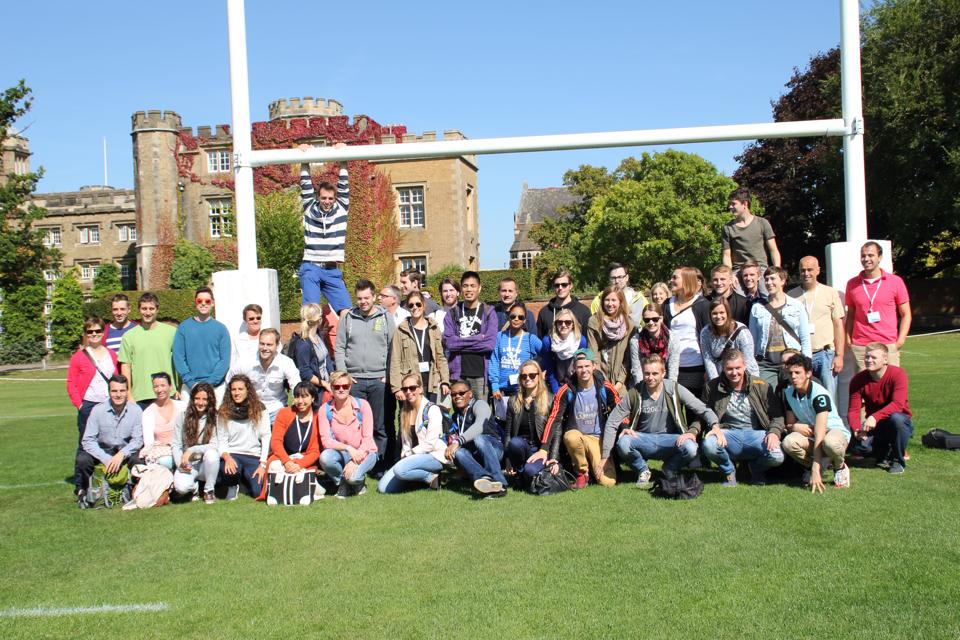
Group of Masters students at Rugby School
Oh for the love of impact! – What is it? And why do I need to ensure my research makes an impact?
What is impact?
Is it as simple as it sounds? Research impact can be defined as “the demonstrable contribution that excellent research makes to society and economy”, as stated by Research Councils UK (RCUK).
Research impact embraces all the different ways in which research-related skills can benefit individuals, businesses and organisations, and nations. Including areas such as; developing global economic performance, more specifically the economic competitiveness of the UK; Grow and develop the effectiveness of public services and policy; and enhancing the quality of life, health and creative output.
There are two known types of impact; Academic impact – which is the visible and evident contribution that excellent social and economic research makes to scientific developments, across and within disciplines; and Economic and societal impact – which is the visible and evident contribution that excellent social and economic research makes to society and the economy, which has a great benefit to individuals, organisations and nations.
What category does your research fit under? Is it Instrumental – whereby your research influences the development of policy, practice or service provision? Or maybe it is Conceptual? – where your research contributes to the understanding of policy issues and reframing debates. Or perhaps it could be Capacity building impact? – which is through technical and personal skill development.
Research impact must also be demonstrable, it is important to provide evidence of the impact of your research, for example; that it has been used by policy makers, or has made improvements in businesses.
To find out more about what impact is, please visit here.

Why do I need to ensure my research makes an impact?
Over recent years, the government has placed a stronger emphasis on the need for evidence of returns from its investment in economic and social research.
Ensuring your research has impact has many benefits to, and for society. High quality and impactful research can help to;
- Develop the value and sustainability of public, private and third sector organisations
- Improve social welfare and cohesion
- Increase economic wealth, wealth creation and regeneration
- Enhance cultural enrichment and quality of life
Impact also has many benefits to the researcher. In order to maximise the impact of your research, you need to engage with your key audience and users – which can effectively provide benefits for the quality of our research, including;
- Early feedback which can help to shape your research plan and improve methodologies currently being used
- It helps to ensure that your research is relevant and meaningful
- It helps to recruit participants, e.g. for focus groups or interviews
- It also helps to develop new skills and raise your research profile
If you would like to find out more about why you should make an impact, please visit here.
If you would like to learn more about how to ensure your research has impact, please do not hesitate to contact Dr Rebecca Edwards in the Research & Knowledge Exchange Office – ext: 61538 or redwards@bournemouth.ac.uk
ARTS in Research (AiR) Collaborative: Two days of creative scholarship
“I can’t remember ever attending such an inspiring ‘in house’ event “.
The newly formed ARTS in Research Collaborative recently held two days of exploration of biography and ways and means of expressing the stories of others creatively and ethically. The workshop was entitled, “A Past/A Present” ARTS in Research (AiR) Workshop.
Using shared objects representing a time or event in each participant’s life, a ‘partner’ then created a five minute presentation of and from the storied materials. Participants in the two-days of exploration came from HSC, the Media School and DEC. Both faculty and postgrad students took part.
The brief was kept simple and instruction to a minimum. Organiser Kip Jones shared examples from his own work of finding ways and means of responding creatively to detailed data as well as time and material constraints. Other than that, participants engaged in a learning process through participation itself and the sharing of their experiences. The group has agreed to write up the encounter for a journal article.
-
“Thank you all for the incredible willingness to be inventive, creative and think/be outside ‘the box'”.
-
“An illuminating two days of deep sharing. I was honoured to be there and look forward to more creative adventures together”.
-
“Inspiring. An artful and generative suspension of ‘normal’ activity”.
The ARTS in Research Collaborative’s next workshop is planned for November at The Lighthouse in Poole. Details to follow. It will be open to a wider audience and there will be a charge to attend, but BU faculty and students are encouraged to apply for training and/or development funding within their Schools.
ARTS in Research (AiR) still accepting new members!
ESRC impact prize award winners – could you be the next?
There were six impact awards offered by the Economic and Social Research Council, and you can find out more about the winners and their impact below. Each winner has made such a significant difference and impact with their research that has had a positive and effective impact on today’s society and some of the challenges that we face. If you would like to learn more about how to ensure your research has impact, please do not hesitate to contact Dr Rebecca Edwards in the Research & Knowledge Exchange Office – ext: 61538 or redwards@bournemouth.ac.uk
Professor Neil Wrigley, University of Southampton won the impact award for ‘Outstanding Impact in Business’. The work of Professor Neil Wrigley and his colleagues has helped to transform thinking on food retail development, its role in sustaining viable town centres and the future of UK high streets. His research influenced national and international debates and UK competition policy. His research collaborations with Tesco and Sainsbury also helped to change the UK retailers’ appreciation of the value of evidence-based research and knowledge exchange with social science.
Professor Debra Myhill, University of Exeter won the ‘Outstanding Impact in Society’ award. Professor Debra Myhill led a decade of research into the development of writing in school children. Her research has shaped national and international policy, and has improved children’s writing abilities and changed classroom practice.
Dr Clifford Stott, University of Leeds won the ‘Outstanding Impact in Public Policy’ award. His research on ‘new approaches to crowd psychology’ is helping police manage the potential for conflict in crowds while allowing people’s rights to protest through dialogue and negotiation. Dr Stott assisted in the design and implementation of a policy use of force strategy for the UEFA European Football Championships (2004) and helped to design, develop, train and implement the UK’s first Police Liaison Teams (2011).
Dr Sabina Alkire, University of Oxford, won the ‘Outstanding International Impact’ award. Dr Alkire and colleagues had developed an innovative method for measuring multidimensional poverty. The method is used to help governments and organisa tions globally to design poverty-reduction programmes that are more effective.
tions globally to design poverty-reduction programmes that are more effective.
Hannah Lambie-Mumford, University of Sheffield is an early career researcher who was won the award for ‘Outstanding Early Career Impact’. Hannah’s research on emergency food provision in the UK has provided policymakers, the charitable sector and media with thought-provoking evidence to inform the food poverty debate. Her findings shaped the terms of reference for the April 2014 All-Party Parliamentary Inquiry into hunger and food poverty, and she joined the advisory group of Oxfam, CPAG and Church of England for research into food poverty and food banks in early 2014.
Professor Sir David Hendry, University of Oxford won the ‘Lifetime Achievement Award’. Throughout five decades Professor Hendry has developed macroeconomic models that capture how economies work. These are now embedded in software which is widely used by policymakers and decision-makers. Professor Hendry commented, “The impact has been the interaction between developing vastly more powerful methods than when I started, that have a much higher chance of finding the causal relationships that operate in the economy, and embedding these models in software that is very easy to use and is massively labour-saving.”
For further information you can visit here.
Congratulations to Dawn Morley
Congratulations to Dawn Morley, senior lecturer in HSC, who is taking on leadership of the Post Graduate Certificate in Education Practice with immediate effect from Linda Byles, as she is leaving BU shortly. Many of you will know that Dawn is currently CEL theme leader for innovation, entrepreneurship and creativity and is looking forward to this new role, which will be for semester one at this point. I’m sure you will all look forward to working with Dawn in this new capacity.
Thanks.
Gail
Professor B. Gail Thomas
Dean of Health and Social Care & Director of the Centre for Excellence in Learning
Bournemouth University
HSC student Jonny Branney’s main PhD findings published –
HSC PhD student Jonny Branney and his first supervisor Professor Alan Breen have had a paper published in the open-access online journal Chiropractic & Manual Therapies. It is entitled, “Does inter-vertebral range of motion increase after spinal manipulation? A prospective cohort study.” This is an important question in the field of manual therapy where the mechanisms behind the clinical effects of manual treatment are often poorly understood. This PhD aimed to shed some light on the mechanism of this particular therapy commonly utilised by chiropractors, physiotherapists, osteopaths and some doctors. It is hoped that improving our understanding of the mechanism will ultimately improve the targeting of spinal manipulation to those expected to benefit from it.
Please click on the link if you’d like to read the study:
http://www.chiromt.com/content/22/1/24
And email Jonny if you’d like to find out more!
This PhD was funded by a grant from the European Chiropractors’ Union and Jonny is also very grateful to the BU Graduate School for a PGR Development Award and a Santander Mobility Award that allowed him to present his work at international conferences. His supervision team included Professor Jenni Bolton (AECC) and Dr Sarah Hean (HSC).
“3D Printing: Understanding the Technology and Law” at the Festival of Learning
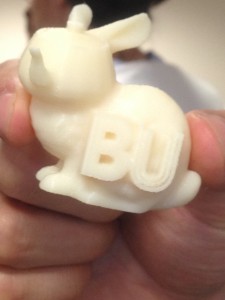 On Monday 9 June, Dr. Dinusha Mendis of the Law Department hosted an event on ‘3D Printing: Understanding the Technology and Law’ at Bournemouth University’s Festival of Learning in collaboration with the Media School and School of Science and Technology.
On Monday 9 June, Dr. Dinusha Mendis of the Law Department hosted an event on ‘3D Printing: Understanding the Technology and Law’ at Bournemouth University’s Festival of Learning in collaboration with the Media School and School of Science and Technology.
The event which was held from 5-7 pm on 9th June 2014 included three short presentations and a tour of the 3D printing facilities at Bournemouth University.
The presentations focused on the various aspects of the technology and law relating to 3D Printing and were delivered by Dr. Leigh McLoughlin of the Media School; Mr. Gary Underwood from the School of Science and Technology and Dr. Dinusha Mendis of the Law Department, Business School.
Following the talks, the attendees were taken on a hands-on tour of the 3D printing facilities at Talbot Campus, Bournemouth University – and did not leave the event empty-handed. Each attendee was given a 3D printed momento to take home – as seen in the picture!
The event was enjoyable and very well attended – generating a wait list after the allocated tickets were sold out. Apart from that, the Festival of Learning provided the perfect platform to showcase the research relating to the legal and technological implications of 3D Printing. With a hands-on tour planned, it also provided the opportunity to engage the attendees in a more light-hearted manner.
The Festival of Learning has also acted as a spring board for a further event in the area of 3D Printing and Intellectual Property Law which will once again be hosted by Dr. Dinusha Mendis at Bournemouth University later this year.
The following video clip captures the essence of the Festival of Learning and provides an insight into the many exciting events which took place during 9-15 June 2014 at Bournemouth University.
Epidurals PhD researcher wins EPSRC award
Congratulations to SciTech’s Dr Neil Vaughan who has won the EPSRC’s ICT Pioneers ‘Transforming Society’ award. The accolade, which recognises the most exceptional UK PhD students, was awarded to Neil at a ceremony in Westminster last week for his innovative epidural simulator project.
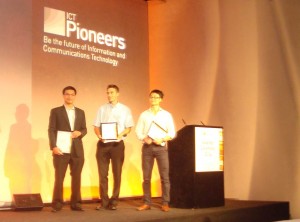 The simulator uses software to replicate the epidural process, thereby assisting in training for this delicate procedure that is performed over 1000 times each day in the UK.
The simulator uses software to replicate the epidural process, thereby assisting in training for this delicate procedure that is performed over 1000 times each day in the UK.
Neil’s supervisor Dr Venky Dubey said: “This is an exceptional achievement for BU and the collaborating partner Poole Hospital NHS Foundation Trust. Neil was up against stiff competition from top universities, including the University of Oxford, University College London and the University of Bath.”
The clinical project was proposed by the senior consultant anaesthetist at Poole Hospital, Professor Michael Wee, who also co-supervised the PhD.
Neil’s work was judged by a panel of technical experts from academia and industry. He triumphed through a rigorous selection process over a six month period, which included a written proposal, video and poster presentation. This culminated in a high-profile research showcase, where finalists pitched their project to representatives from the EPSRC, Hewlett Packard, Defence Science and Technology Laboratory (DSTL), BT and an audience of hundreds.
For more information about the project view the news item on the research webpages.
Strong Presence of our Computing Research at RCIS’14 Conference in Morocco
Our research in the area of Human-Centred Software Systems has been presented through three full papers in the IEEE Eighth International Conference on Research Challenges in Information Science (RCIS), which was held on May 28-30 2014 in Marrakesh, Morocco.
http://www.rcis-conf.com/rcis2014/
Our presented papers in RCIS 2014 are:
- Mahmood Hosseini, Keith Phalp, Jacqui Taylor, Raian Ali. The Four Pillars of Crowdsourcing: A Reference Model.
- Malik Almaliki, Cornelius Ncube, Raian Ali. The Design of Adaptive Acquisition of Users Feedback: an Empirical Study.
- Raian Ali, Nan Jiang, Sherry Jeary, Keith Phalp. Consideration in Software-mediated Social Interaction.
The papers were presented by Dr. Nan Jiang, and the PGRs Mahmood Hosseini and Malik Almaliki. It was a great opportunity for knowledge exchange and to maximize impact and visibility of our research. Interesting ideas as a follow up of our research were discussed and a number of overseas colleagues expressed interest in visiting us to do a joint work.
To get the presentations, please visit our Slideshare at: http://www.slideshare.net/Sociad-BU/
BU student Jib Acharya presents poster in Ethiopia
 HSC Ph.D. student Mr. Jib Acharya presented a poster in Ethiopia on his thesis research. His poster accepted by the scientific committee of the Micronutrient Forum Global Conference in Addis Adeba, the capital of Ethiopia.
HSC Ph.D. student Mr. Jib Acharya presented a poster in Ethiopia on his thesis research. His poster accepted by the scientific committee of the Micronutrient Forum Global Conference in Addis Adeba, the capital of Ethiopia.
Jib Acharya reported on his Ph.D. research which involves a mixed-methods study of to assess knowledge, attitudes and beliefs about nutritious food amongst rural and urban mothers in one district of Nepal. The poster highlighted that both knowledge of and attitudes towards nutritious food of rural and urban mothers are still poor in both rural and urban populations.
Jib’s supervisors in the School of Health & Social Care are: Dr. Jane Murphy, Dr. Martin Hind and Prof. Edwin van Teijlingen.

Reference:
Acharya, J., van Teijlingen E., Murphy, J., Hind, M. (2014) A Comparative Study on Nutritional Problems in Preschool Aged Children of Nepal, poster presented at the Micronutrient Forum Global Conference in Addis Adeba, Ethiopia, June 2014.
Well done!
Prof. Edwin van Teijlingen, CMMPH
Strong CMMPH presence at ICM conference in Prague!
In the first week of June members of the Centre for Midwifery, Maternal and Perinatal Health presented BU’s midwifery research and education at the 30th ICM (International Confederation of Midwives) Congress in Prague (Czech Republic).
There were four oral presentations in total, one workshop and three poster presentations. The oral presentations comprised:
- Dr. Carol Wilkins (see picture) presented from her Ph.D. work ‘Emotional processing in childbirth study: exploration of the relationship between maternal emotions in pregnancy and risk of postnatal depression’.
- HSC Professor Vanora Hundley presented her international work on clean birth kits.
- Senior Lecturer in Midwifery Alison Taylor gave a paper under the title ‘Letting off steam! Video diaries to share breastfeeding experiences. Her Ph.D. thesis research uses a novel approach of giving hand-held cameras to make home video diaries about their ‘realities’ of breastfeeding.
- HSC student Sheetal Sharma presented her Ph.D. research ‘Getting women to care: mixed–methods evaluation of maternity care intervention in rural Nepal’.
Dr Susan Way led a workshop on escalating concerns in relation to poor clinical practice and disrespectful care.
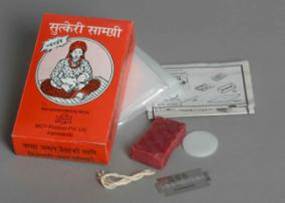
Furthermore, three HSC posters were displayed as part of a special session on Midwifery in South Asia, all three related to different CMMPH maternity care studies conducted in Nepal.
- Sharma, S. Sicuri, E., Belizan, JM., van Teijlingen, E., Simkhada, P., Stephens J., Hundley, V., Angell, C., Getting women to care in Nepal: A Difference in Difference analysis of a health promotion intervention
- Milne, L, Hundley, V, van Teijlingen, E, Ireland, J, Simkhada, P, Staff perspectives of barriers to women accessing birthing services in Nepal: A qualitative study,
- Sharma, S., van Teijlingen, E., Hundley, V. Simkhada, P., Angell, C. Pregnant & Dirty?
Prof. Edwin van Teijlingen
CMMPH
Energy Scarcity and the Role of Renewable Technologies
Energy Scarcity and the Role of Renewable Technologies
Date: Friday 13 June
Time: 18:00-20:00
Venue: EB306 (Bournemouth University Executive Business Centre)
Introduction
European initiative to generate 20% in the total energy supply from renewable sources by 2020 leads to a strong need for research and development of low carbon technologies. For the successful delivery of this objective through a sustainable mechanism wider community and stakeholders’ engagement is important.
The proposed event will initiate discussion and understanding of the energy issues, sustainability and potentials of providing engineering and technological solutions to generate energy through solar thermal, tidal, fluvial and wind turbines. The potentials of generating heat energy through heat pumps will also be discussed. It is also important to fully understand and assess the socio-economic, political, geographical and environmental implications of the future needs of energy and supply chain.
This event will provide a networking opportunity for public engagement, local/regional businesses, government, community and local council representatives, cross-channel collaborators, academics and researchers.
Brief presentations from the Renewable Energy and Technology theme will be delivered. There will be a number of key interventions from local advocates for and against the proposed theme.
The audience will then be invited to ask questions from the panellists to learn more about the issues around topic.
Programme
18:00 Arrival, Registration, Informal Networking
18:30 Presentation: BU Sustainable Design Research Centre’s Community Engagement, Research & Education activities in Renewable Technologies – Dr Zulfiqar Khan
18:50 Q&A
19:00 Introduction of Q&A Panel – Professor Mark Hadfield (Host)
19:05 Q&A session with panel– Professor Mark Hadfield (Host)
19:35 Informal Networking
20:00 Close
For further info and how to book for the event please visit following links
Event Lead/Organiser: Dr Zulfiqar Khan
Associate Professor
Director Sustainable Design Research Centre
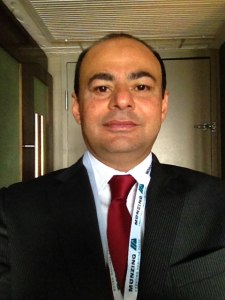
Dr Zulfiqar Khan is leading Sustainable Design Research Centre (SDRC) as Director. He has interests in Nano-materials/tech, tribology, durability of interacting systems through surface engineering, corrosion, corrosion simulation and modelling, solar thermal technologies and mechanical current devices. SDRC has developed a significant portfolio of research (fully funded/match funded research projects), education (UG Design Engineering live projects) and professional practice (joint collaborative industrial projects, engagement with professional institutions/forums) within Renewable Technology.
Panel Host: Professor Mark Hadfield
Deputy Dean Research, Enterprise & Internationalisation
Faculty of Science & Technology

Professor Mark Hadfield has been the Deputy Dean REI for almost five years and a Professor at Bournemouth for ten years. During the last five years he has led research within the School which includes Computing, Psychology and Engineering at a period of changing academic emphasis. He joined Bournemouth University in 1997 as a Senior Lecturer teaching Materials and Manufacture and also started an MSc programme in the area of sustainable product design. During this period he has received grants from the Engineering and Physical Sciences Research Council, The Royal Academy of Engineering, international research centres, charities and industry.
Panel Member: Pete West
Renewable Energy Development Officer
Dorset County Council

Pete West has 10 years’ previous experience as Renewable Energy Project Manager at not-for-profit energy advice centres in West Wales and Gloucestershire. During that time he worked on projects covering energy crops, wood fuel, locally owned wind turbines, training for renewable energy installers and community sustainable energy.
Pete was also a member of the management board of the Danish-based International Network for Sustainable Energy and has extensive renewable energy contacts in a number of European countries.
He has been employed as Dorset County Council Renewable Energy Development Officer since 2008 and whilst in post has been secretary of the Dorset Energy Partnership’s Community Sustainable Energy Group, Planning Working Group and Bioenergy Working Group.
He has led Dorset County Council’s participation in a number of successful European funding bids to support sustainable energy in Dorset.
Panel Member: Dr Nigel Garland
Senior Lecturer in Sustainable Technology

Contact
If you would like more information about this event, Sustainable Design Research Centre or have any question please contact
Dr Zulfiqar Khan Associate Professor
Director
Sustainable Design Research Centre
Faculty of Science & Technology SciTech
Bournemouth University Poole House – 330
Dorset, BH12 5BB, UK
Tel: +44-1202-961645
Bournemouth-Utrecht: Fusion Project Workshop
We would like to invite you to the workshop of our BUUU project “Bournemouth University and Utrecht University Network on Empowering Software Production by Gamification and Crowdsourcing”. BUUU is funded by the Fusion Investment Fund of Bournemouth University.


Date: Thursday, 12 – Jun – 2014
Location: P302 LT, Poole House, Talbot Campus, Fern Barrow, Poole, BH12 4BB
Program:
14:00 – 14:15 — Social Software Engineering at Bournemouth University. Raian Ali, Bournemouth University
14:15 – 14:30 — Gamified Software Engineering at Utrecht University. Fabiano Dalpiaz, Utrecht University
14:30 – 14:45 — Crowdsourcing for Requirements Elicitation in Large-scale Dynamic Software Systems. Mahmood Hosseini, Bournemouth University
14:45 – 15:00 — On the Use of Gamification for Obtaining Software Feedback. Mats Hofman, Utrecht University
15:00 – 15:15 — Crowd-driven Evolution for Socio-technical Systems. Alimohammad Shahri, Bournemouth University
15:15 – 15:30 — Development Techniques for Feedback-aware Software. Nick Linakis, Utrecht University
15:30 – 15:45 — Developing Adaptive and Socially-aware Feedback Acquisition. Malik Almaliki, Bournemouth University
15:45 – 16:00 — Crowd-centric Requirements Engineering. Remco Snijders, Utrecht University
The room is booked till 17:00. The participants and audience are invited to engage in further discussions and networking.
All are welcome.
BU Nepal health research at international midwifery conference
 Yesterday HSC Ph.D. student Sheetal Sharma presented her key research findings under the title ‘Getting women to care: mixed–methods evaluation of maternity care intervention in rural Nepal’ at the 30th congress of the ICM (International Confederation of Midwives) in Prague. Sheetal’s Ph.D. evaluates the effectiveness of a health promotion intervention aiming antenatal care attendance in rural Nepal. Her evaluation suggests that practice should be socio-culturally appropriate and inclusive not only of women but also their families.
Yesterday HSC Ph.D. student Sheetal Sharma presented her key research findings under the title ‘Getting women to care: mixed–methods evaluation of maternity care intervention in rural Nepal’ at the 30th congress of the ICM (International Confederation of Midwives) in Prague. Sheetal’s Ph.D. evaluates the effectiveness of a health promotion intervention aiming antenatal care attendance in rural Nepal. Her evaluation suggests that practice should be socio-culturally appropriate and inclusive not only of women but also their families.

This afternoon three HSC posters were displayed as part of a special session on Midwifery in South Asia. All three posters featured aspects of maternity care research conducted in the Centre for Midwifery, Maternal and Perinatal Health in Nepal.
Poster 1: Staff perspectives of barriers to women accessing birthing services in Nepal: A qualitative study
Milne, L, Hundley, V, van Teijlingen, E, Ireland, J, Simkhada, P,
Poster 2: Pregnant & Dirty?
Sharma, S., van Teijlingen, E., Hundley, V. Simkhada, P., Angell, C.
Poster 3: Getting women to care in Nepal: A Difference in Difference analysis of a health promotion intervention
Sharma, S. Sicuri, E., Belizan, JM., van Teijlingen, E., Simkhada, P., Stephens J., Hundley, V., Angell, C.
Prof. Edwin van Teijlingen
CMMPH
PGR Development Fund Activity Report by Nada Sherief: SciTech
About Me
I am Nada Hany Sherief, a 2nd year Part-time PhD Student in Computing at the Faculty of Science and Technology.
The Conference (EASE 2014)
EASE’14, the International Conference on Evaluation and Assessment in Software Engineering, is one of the top conferences in the area Software Engineering (CORE Rank: A). This year, EASE was held on 12-14 May, in London, UK.
The Papers
I have submitted two papers to EASE’14. The first is titled by “Crowdsourced Software Evaluation”, and was accepted in the New Ideas track. The second is titled by “Software Evaluation via Users’ Feedback at Runtime” and it was accepted in the Doctoral Symposium of the conference.
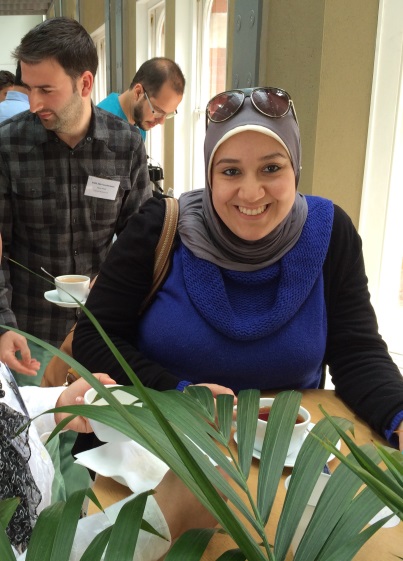
The Benefits
The PGR Development Funds from BU enabled me to attend EASE’14, which was an ideal place to launch the new idea of my research and have it discussed with colleagues and experts in the empirical software engineering community.
The research idea of a socialized software evaluation was found very interesting. Both presentations discussed the preliminary results of my research. Also, I presented several research challenges that are not yet addressed in the literature, and could be a starting point for future work not only in my research but also in the wider scope of the community.
This participation has added several skills to me. On the personal side it gave me a good motivation and confidence to continue my work in that area. It also gave our research more visibility in the research community. On the research side, I have gained much feedback about how to enhance and better frame my work which will certainly consolidate my PhD experience.
Acknowledgement
I would like to thank the Graduate School at Bournemouth University for their PGR Development Fund which sponsored this activity which had very positive impact on my PhD journey.
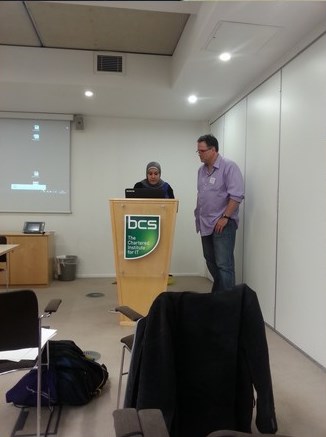
PGR Development Fund Activity Report by Malik Almaliki: SciTech
The International Working Conference on Requirements Engineering: Foundation for Software Quality (REFSQ) is one of the leading international forums in the area of Requirement Engineering for software systems. My main activity was to present a full research paper at this conference which was held in Essen, Germany, April 7-10, 2014. The paper was titled “Requirements-driven Social Adaptation: Expert Survey” and was collaboratively written with colleagues from University of Birmingham.
In this research paper I disseminated a part of my findings of the first year of my PhD. It reports on the results of a two-phase Expert Opinion study that was conducted to identify core benefits, domain areas, styles of use and challenges for the socially-adaptive software and users’ feedback acquisition. The study involved around 30 experts in Requirement Engineering and Adaptive Systems which also helped us to know how our vision in the area is perceived by the wider community.

The Graduate School PGR Fund provided me with a great opportunity to attend the REFSQ’14 conference and get my work published and recognized. Being able to participate in REFSQ’14 was one of the distinguished events in my PhD journey. It played a significant role in increasing my motivations and confidence and giving my research a visibility in such a well reputed venue. The reviews of the paper and the feedback given by REFSQ’14 attendees were invaluable and, together with the constructive feedback and critiques, helped me preparing well for the transfer exam which went very well. This activity consolidated my presentation and communication skills.
I would like to thank the Graduate School for this PGR Development Fund which enabled me to have this great opportunity. Participation at REFSQ’14 was a huge motive that pushed me step further towards a successful PhD journey.
PG Researcher Development Workshops
 WHAT’S ON in June 2014
WHAT’S ON in June 2014
- Introduction to Bournemouth Research Information & Network (BRIAN) – 4 June
- Managing Pressure Positively – 10 June
- Nvivo (Day 1) Introduction – 16 June
- Nvivo (Day 2) Advanced – 17 June (attendance Day 1 is mandatory – to register your interest in this workshop – please email pgrskillsdevelopment@bournemouth.ac.uk). Numbers are restricted
- Importance of Publishing – 18 June
- Introduction to Case Studies – 24 June
Full details and sign up lists are available via myBU (Graduate School PGR Community).
Don’t forget that if you have both staff and student email accounts, you’ll need to log on with your student username and password. Please check your student email account for email reminders.



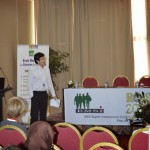
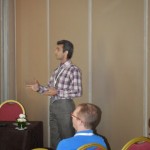
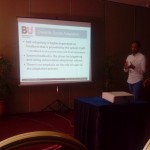












 BU attendance at third annual GCPHR meeting in June
BU attendance at third annual GCPHR meeting in June Interactive Tangible and Intangible Heritage Applications – BU student work featured in new book chapter
Interactive Tangible and Intangible Heritage Applications – BU student work featured in new book chapter Second NIHR MIHERC meeting in Bournemouth this week
Second NIHR MIHERC meeting in Bournemouth this week MSCA Postdoctoral Fellowships 2025 Call
MSCA Postdoctoral Fellowships 2025 Call ERC Advanced Grant 2025 Webinar
ERC Advanced Grant 2025 Webinar Horizon Europe Work Programme 2025 Published
Horizon Europe Work Programme 2025 Published Horizon Europe 2025 Work Programme pre-Published
Horizon Europe 2025 Work Programme pre-Published Update on UKRO services
Update on UKRO services European research project exploring use of ‘virtual twins’ to better manage metabolic associated fatty liver disease
European research project exploring use of ‘virtual twins’ to better manage metabolic associated fatty liver disease